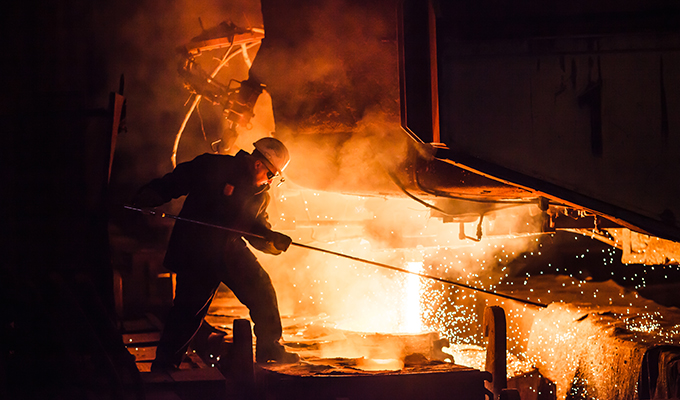EU policymakers still need to provide supply of internationally competitively priced low-carbon energy, establish lead-markets for European green steel, and introduce measures to address massive excess capacity in the global steel market, says Eurofer.
Although the EU has launched a number of initiatives in recent years to support decarbonisation, these issues remain “the real bottlenecks”, Eurofer director general Axel Eggert says in a note sent to Kallanish.
Eurofer delivered this message during this week’s Clean Transition Dialogue on Steel in the presence of the executive vice presidents of the European Commission, Maroš Šefčovič and Margrethe Vestager.
2023 saw the lowest European crude steel production levels ever, with a number of idled plants and dire impact on workers, the association says. The short-term viability of European steel sector decarbonisation must be top of the EU agenda, it adds.
“European economic integration was built with steel, the backbone of Europe’s manufacturing value chains. We firmly believe that also the future of Europe and its cleantech sector can only be forged with European green steel. This EU Dialogue is the first significant initiative going in this direction, and we hope that it will be continued and followed by concrete steps,” Eggert says.
The European steel sector is the frontrunner in decarbonisation at a global level, with about 60 low-carbon projects out of 80 planned worldwide. However, capital investment requirement amounts to €31 billion and operational expenditures to €54 billion, totalling €85 billion ($92 billion).
However, the EU steel industry’s leadership in the race to net-zero is jeopardised by energy prices that are 4-6 times higher than competitor regions, and a global non-market excess capacity of 600 million tonnes, with 150mt more planned in the next three years. Further hurdles are government subsidies, unfair trade practices distorting the international playing field, and uneven climate ambition between regions, Eurofer says.
It advocates streamlining across all policy areas a joint green industrial policy that spurs investments, including by creating lead markets for European green steel; promoting access to affordable fossil-free energy; and enforcing a robust trade policy based on reciprocity against unfair practices. Also important are to secure access to critical raw materials, including scrap, for the transition, and provide adequate training and academic opportunities for young talent.
Adam Smith Poland






